Plants don’t appear too often in Halloween decor, but living things can evoke a festive feeling for the season as much as anything you’d buy — without feeling like holiday overkill. Follow along as Baylor Chapman of Lila B. Design shows us how to make a Halloween terrarium, complete with a Venus’ flytrap and other spooky plants, that won’t take long to assemble and can even be repurposed and replanted after the holiday. That doesn’t sound too scary, does it?
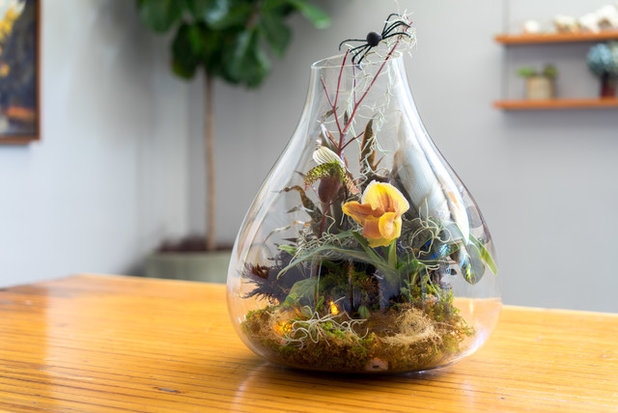
Hoi Ning Wong
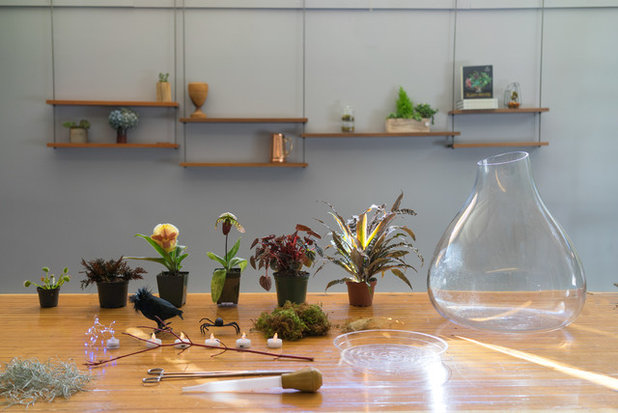
Hoi Ning Wong
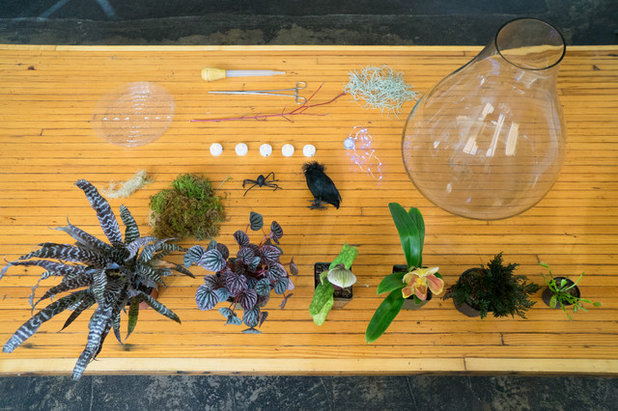
Hoi Ning Wong
Plant MaterialsUse plants in 4-inch or smaller pots.
- ‘Black Mystic’ earth star (Cryptanthus ‘Black Mystic’), above left, or another strappy plant, such as a Dracaena, another earth star or another bromeliad
- Emerald ripple pepper (Peperomia caperata), second from left, or a fancy-leaf begonia
- Lady’s-slipper orchid, center, moth orchid or another tall element with facial character
- Bulldog orchid, third from right, or moth orchid
- Ruby red spikemoss (Selaginella erythropus ‘Sanguinea’), second from right, or wire vine (Muehlenbeckia spp.) for an airy, creeping and crawling feel
- Venus’ flytrap, right, pitcher plant or another carnivorous plant
- Sheet moss (any moss type)
- Spanish moss
- A branch with an interesting shape and texture that is just taller than the glass vessel
Other Materials and Tools- Glass vessel (a glass cylinder, water cooler or ball jar would work too)
- Plastic tray insert that fits flat in the terrarium’s base
- Extra-long tweezers or tongs
- Battery-operated string lights and tea lights
- Craft owl and spider
- Turkey baster (for watering)
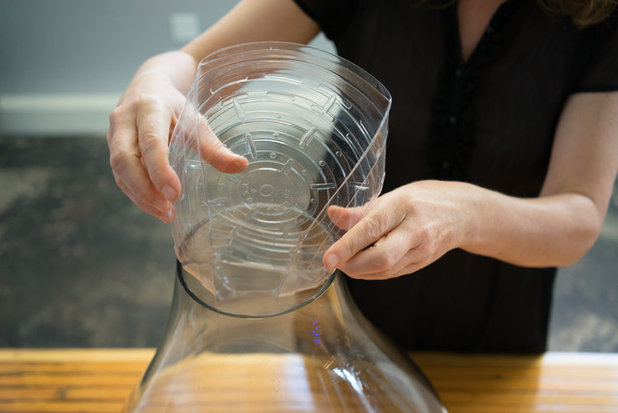
Hoi Ning Wong
1. Insert the plastic tray into the vessel. All the plant containers will sit on this tray, and it will collect any excess water from watering.
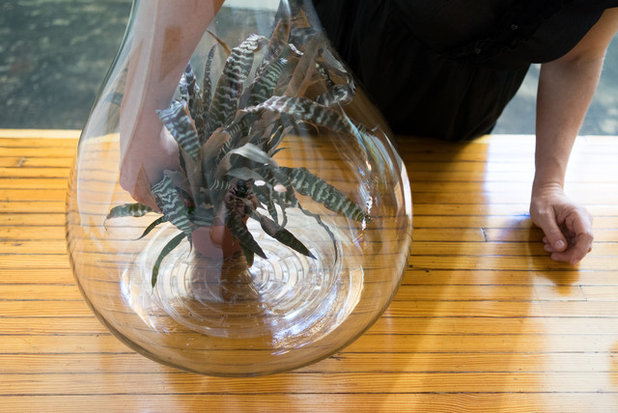
Hoi Ning Wong
2. Place the plants, still in their plastic pots, on the tray. Place the largest plants first, arranging them in the back of your terrarium, then place the smaller plants in the front.
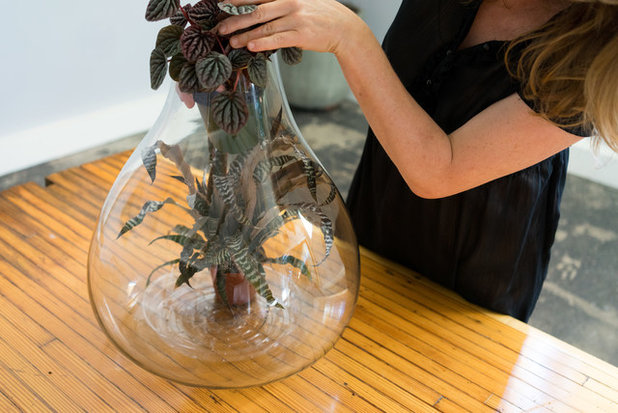
Hoi Ning Wong
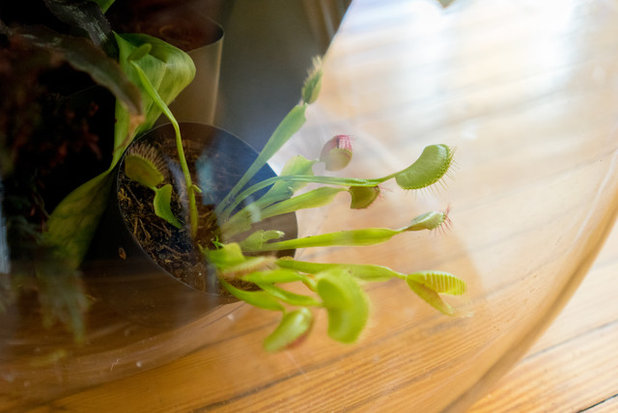
Hoi Ning Wong
Tilt the smaller plants forward, like the Venus’ flytrap shown here, so you can see them more clearly and so they will fill out the terrarium’s lower portion.
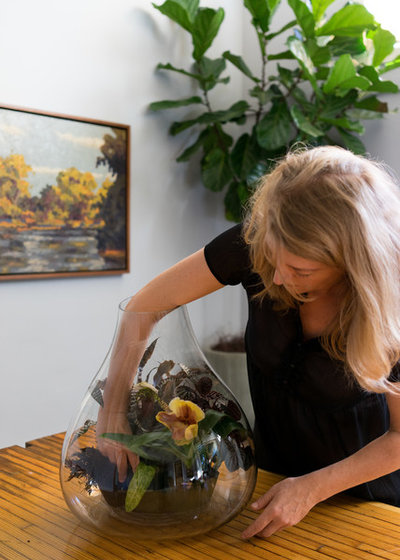
Hoi Ning Wong
After you’ve placed all the plants in the terrarium, fluff up any leaves that are pushed up against the glass. Intertwine the plants’ foliage and blend the plants together. You want them to look like they’ve grown together for ages.
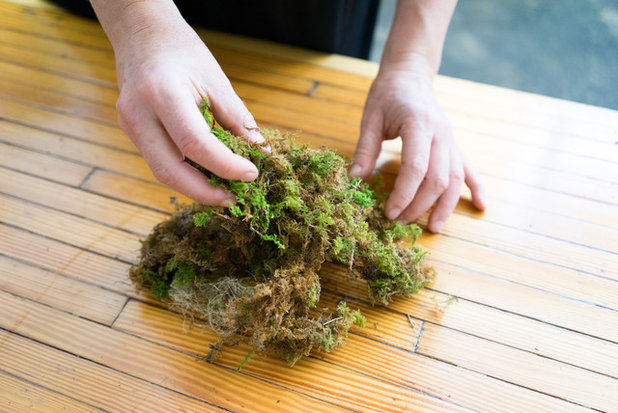
Hoi Ning Wong
3. Grab the moss that will be used to conceal the plastic pots. Chapman used sheet moss, but almost any variety will do. For a more unusual scene, try a dyed moss.
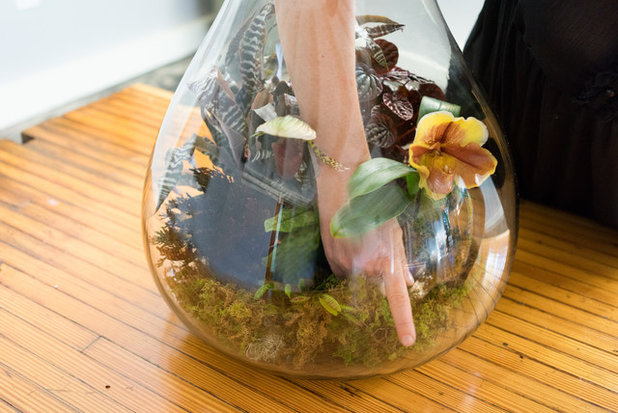
Hoi Ning Wong
Tuck the moss in between the containers and on top until the plastic is completely covered.
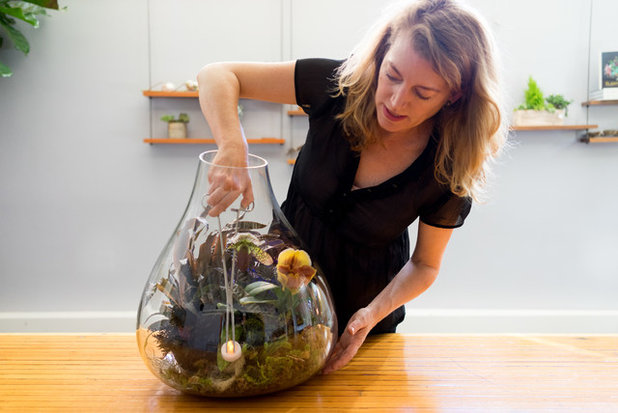
Hoi Ning Wong
4. Using your extra-long tweezers, insert the battery-operated lights.
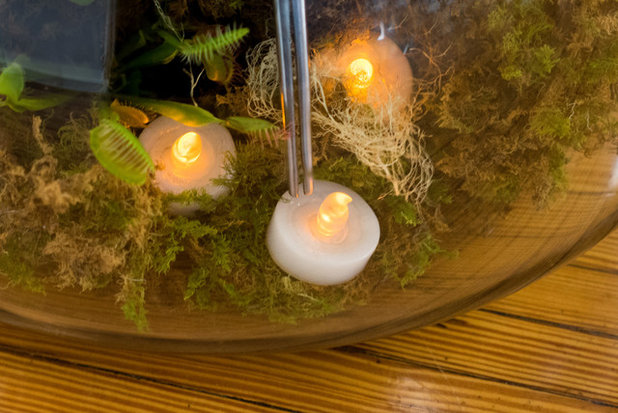
Hoi Ning Wong
Chapman clustered a few tea lights in front to brighten a dark spot and to highlight the small Venus’ flytrap.
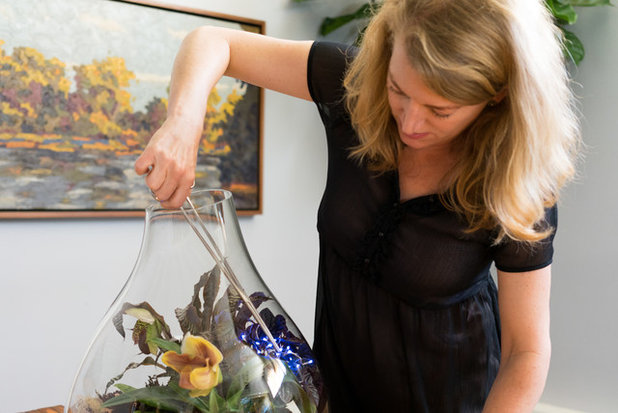
Hoi Ning Wong
Then Chapman placed string lights in back so the emerald ripple pepper would glow and to highlight the dark owl figurine she would add later.
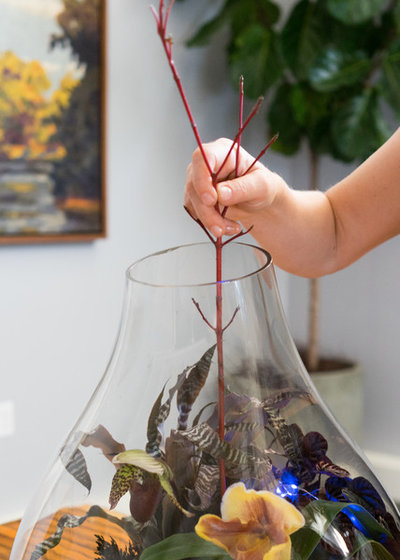
Hoi Ning Wong
5. Insert the branch for the spider’s perch.
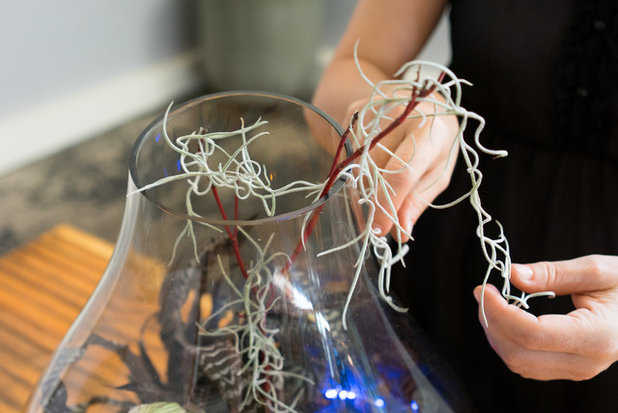
Hoi Ning Wong
Then drape Spanish moss over the branch.
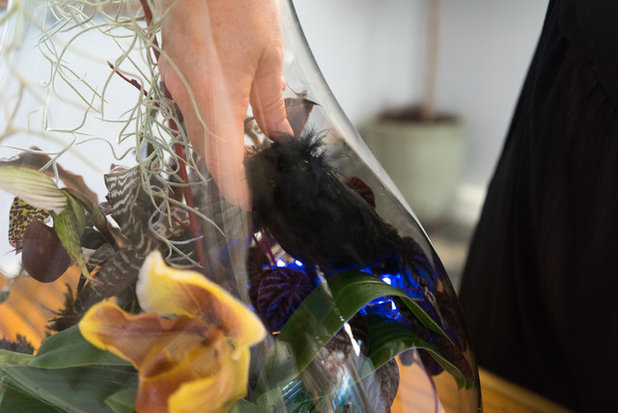
Hoi Ning Wong
6. Place the black owl above the string lights so it is illuminated.
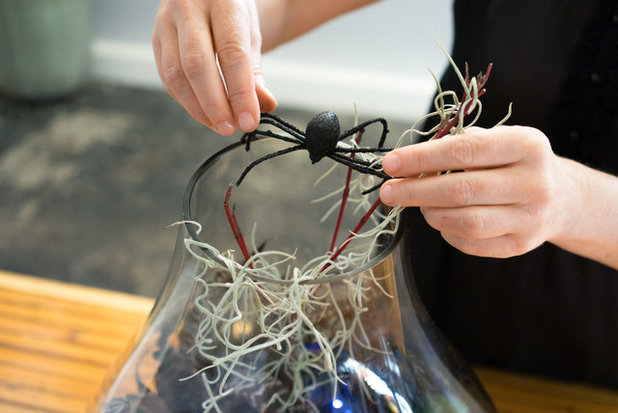
Hoi Ning Wong
7. Add the spider on top of the branch and moss so that it appears to be spinning a web in the terrarium.
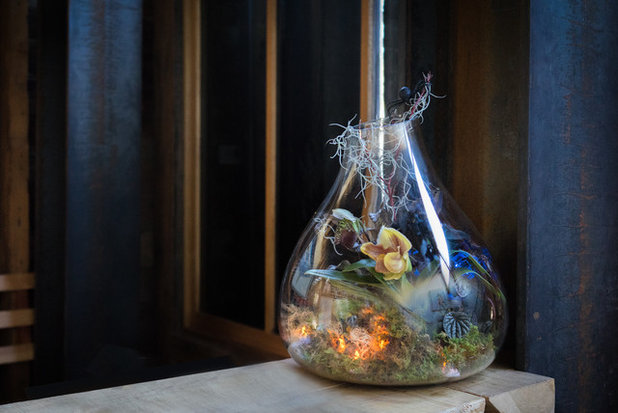
Hoi Ning Wong
Place your finished terrarium on a shelf or flat space where you, or trick-or-treaters, can enjoy it. Keeping it out of hot, direct light will prolong its life; aim for a spot that receives indirect, bright light.
Chapman suggests checking on the terrarium weekly for watering. Use the turkey baster to water each plant container. The soil should remain slightly moist. The plastic tray will hold extra water, but avoid overwatering. Stop watering for a while if the terrarium appears foggy and soggy.
The orchids’ blooms will eventually fade, and the Venus’ flytrap might need more maintenance than the other plants, but you can easily swap out plants as needed to create a terrarium that can last years. Once you’ve decided you no longer want a terrarium, you can transplant all the plants, still in their plastic containers.
Tip: To remove plants from the terrarium without damaging them, pull them through the opening of the vessel upside down, with the pot coming out first.





